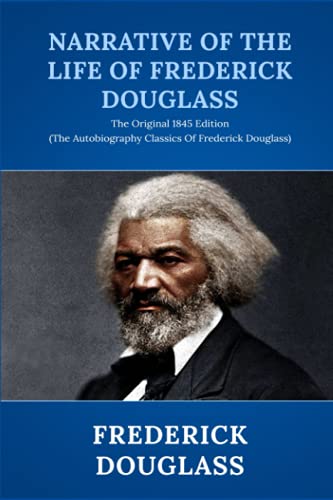10 Best-Selling Civil War Abolition History Books Millions Love
Curated by historian James McPherson, academic Olivette Otele, actor Diedrich Bader, and Mayor Jim Kenney—discover top Civil War Abolition History books readers trust.


There's something special about books that both critics and crowds love, especially when exploring complex chapters of history like Civil War abolitionism. These 10 best-selling books have stood the test of time, offering readers proven insights into the abolitionist movement's cultural, political, and personal dimensions. As the nation continues to grapple with its legacy, understanding abolition history remains crucial.
Experts like James McPherson, a respected Civil War historian, and Olivette Otele, a noted academic, have lent their voices to this collection, recognizing works that illuminate abolitionism beyond battlefield narratives. Actor Diedrich Bader and Philadelphia's Mayor Jim Kenney also highlight how these stories resonate beyond academia, touching lives and inspiring new generations.
While these popular books provide proven frameworks, readers seeking content tailored to their specific Civil War Abolition History needs might consider creating a personalized Civil War Abolition History book that combines these validated approaches.
Recommended by Diedrich Bader
Actor and comedian
“Hey ProfMSinha! I’ve totally been enjoying your book! A truly great read” (from X)
by Manisha Sinha··You?
by Manisha Sinha··You?
Unlike most histories of abolition that focus narrowly on white reformers, Manisha Sinha expands the story to highlight African Americans' crucial role in shaping the movement from the American Revolution through the Civil War. You’ll gain insight into how abolition connected with broader struggles like feminism, utopian socialism, and labor rights, supported by archival letters and pamphlets that reveal the Haitian Revolution's influence and slave resistance tactics. This book challenges common narratives, showing abolition as a transnational radical social movement, not just a moral crusade. If you want a deep dive into abolition’s complexities and its impact on redefining democracy and human rights, this offers a richly detailed, well-researched account.
by James M. McPherson·You?
by James M. McPherson·You?
Unlike most Civil War narratives that center on battlefield strategies, James M. McPherson’s "The Negro's Civil War" shifts the focus to the lived experiences of African Americans during the conflict. Drawing from a rich tapestry of letters, speeches, and contemporary journalism, McPherson offers you a window into the hopes, fears, and resilience of former slaves, soldiers, and intellectuals alike. You’ll gain insight into how black soldiers influenced the Union cause and how emancipation transformed their vision of citizenship. This book suits anyone looking to understand the Civil War from the perspective of those whose voices were often marginalized, revealing the human side of a pivotal era in American history.
by TailoredRead AI·
This tailored book explores Civil War abolition history through a lens that matches your background and interests. It combines proven popular knowledge with a personalized focus on the abolitionist movement’s key events, figures, and cultural impact. By concentrating on elements most relevant to your goals, it reveals nuances in abolition tactics, political shifts, and grassroots activism that shaped this pivotal era. You’ll discover how abolitionist efforts intertwined with the war’s progression and the fight for emancipation, gaining insights that resonate with your specific questions. This personalized approach ensures a rich learning experience, diving deep where you want, and connecting broad abolition history with your own exploration.
by David S. Reynolds·You?
When David S. Reynolds explored John Brown's life, he uncovered more than a militant abolitionist—he revealed a figure whose radical actions reshaped American history. This cultural biography dives into Brown’s violent resistance against slavery, tracing his inspirations from slave revolts to revolutionary Christianity. You’ll gain insight into how Brown's raid on Harpers Ferry and his Kansas conflicts ignited national tensions that led to the Civil War. The book also examines Brown’s lasting impact on civil rights, showing how his demands for equality permeated American culture well beyond his time. If you’re interested in the complex roots of abolitionism and its ripple effects, this book offers a nuanced, historically rich perspective.
James Oakes, a distinguished historian and two-time Lincoln Prize winner, draws from decades of scholarship to unpack the strategic dimensions of antislavery efforts that ignited the Civil War. He details how abolitionists aimed to suffocate slavery by expanding freedom across federal territories, triggering economic and social pressures on the South. This book challenges common assumptions about Lincoln's timing and explores the complex interplay of race and politics leading up to the war. You’ll find deep analysis of abolitionist tactics and southern responses, especially in chapters focusing on the cordon of freedom and secession ordinances. This work suits anyone interested in the nuanced causes of the Civil War beyond battlefield narratives.
by Julie Roy Jeffrey··You?
by Julie Roy Jeffrey··You?
Julie Roy Jeffrey is a history professor with a deep focus on women's roles in social movements, which she channels into this detailed exploration of abolitionism beyond the usual male leaders. You gain insight into the grassroots activism of ordinary women—both black and white—who sustained abolitionism through fundraising, petitioning, and public advocacy. The book draws heavily on personal letters and diaries, revealing the complex motivations and sacrifices these women made, challenging both the institution of slavery and traditional gender norms. If you want to understand how everyday citizens shaped major historical reforms, this book offers a nuanced view of their quiet, persistent impact.
by TailoredRead AI·
This tailored book offers a focused exploration of Civil War abolition history, combining widely recognized insights with your unique interests. It unveils the key events, figures, and social movements that shaped the abolition of slavery, all framed in a step-by-step plan to deepen your comprehension rapidly. The content is personalized to match your background and goals, ensuring you engage with the aspects most relevant to you. By guiding you through a tailored journey, it reveals how abolition outcomes unfolded and why they continue to resonate today. This approach helps you connect historical knowledge with your specific learning objectives, making the past vivid and meaningful.
by Michael Vorenberg··You?
by Michael Vorenberg··You?
Michael Vorenberg, an assistant professor at Brown University and a former research assistant to Lincoln biographer David Herbert Donald, explores the complex legal and political battles that shaped the abolition of slavery beyond the Emancipation Proclamation. You gain insight into the intense debates and volatile party politics that influenced the creation of the Thirteenth Amendment, revealing how constitutional reform redefined American attitudes toward slavery. The book’s detailed narrative, including its focus on northern and border state struggles, suits those seeking a deep understanding of legal history and Civil War-era political dynamics. If you're looking for a nuanced examination of abolition’s constitutional journey, this book offers a focused and well-documented perspective.
by Frederick Douglass··You?
by Frederick Douglass··You?
Frederick Douglass's memoir offers a firsthand account of the brutal realities of slavery and the resilience required to overcome it. You gain insight into his self-taught literacy, the daily violence inflicted by slaveholders, and the courage behind his daring escape to freedom. Chapters detail not only personal suffering but also his transformation into a leading abolitionist voice and skilled orator. This book is particularly valuable if you seek an unvarnished perspective on slavery’s impact and the roots of African American activism during the Civil War era.
Recommended by Mayor Jim Kenney
Philadelphia mayor focused on equity
“Wonderful to meet with Kevin Douglass Greene—the great, great-grandson of Frederick Douglass—to discuss Philadelphia’s rich Black history and receive a copy of Frederick Douglass' book. Thank you, Hands Across Philadelphia, for bringing us together today.” (from X)
by Frederick Douglass, Robert J Benz, Bryan Stevenson, Kenneth B Morris Jr, Nettie Washington Douglass··You?
by Frederick Douglass, Robert J Benz, Bryan Stevenson, Kenneth B Morris Jr, Nettie Washington Douglass··You?
What started as Frederick Douglass's personal journey from slavery to freedom became a powerful narrative that reshaped public perception of abolition. This Bicentennial Edition enriches the original 1845 autobiography with family histories and rare images, deepening your understanding of the Douglass legacy and its ties to broader civil rights struggles. You’ll gain insight into the lived experience of slavery, the roots of abolitionist thought, and the ongoing social challenges highlighted by Bryan Stevenson's introduction on racial injustice today. This book suits anyone seeking a firsthand account that connects historical abolition with contemporary issues in racial equity.
by Professor Ronald G. Walters·You?
by Professor Ronald G. Walters·You?
What makes this book a recurring favorite is Professor Ronald G. Walters' unique approach to understanding abolitionism after 1830 as an extension of American cultural and institutional values rather than just a political movement. You gain insight into the nuanced perceptions, symbols, and emotional currents that shaped abolitionist thought, especially through Walters' analysis of primary sources and cultural context. Chapters dissect how abolitionism evolved beyond mere activism into a broader societal dialogue, making it particularly enlightening if you're interested in the interplay between culture and reform movements. This book suits anyone looking to deepen their grasp of Civil War abolition history through fresh perspectives rather than conventional narratives.
by Harriet Martineau·You?
by Harriet Martineau·You?
When Harriet Martineau set out to write about the American slavery debate, she brought a journalist's eye and a reformer's passion to a deeply divided nation. Her collection of over fifty essays and articles offers you a firsthand look at the social and political tensions leading up to the Civil War, enriched by her travels across both Northern and Southern states. You gain insight into the perspectives of abolitionists and supporters of slavery alike, as well as the courage it took to champion emancipation amid threats and controversy. If you're seeking to understand abolitionism through the lens of an early female journalist deeply embedded in the era's upheaval, this book provides a rare, candid window into that turbulent time.
Popular Strategies That Fit Your Situation ✨
Get proven popular abolition history methods without generic advice that doesn’t suit you.
Validated by top historians and thousands of readers
Conclusion
These 10 books collectively reveal the diverse layers of Civil War abolition history—from grassroots activism and radical figures to legal battles and firsthand accounts. If you prefer proven methods deeply rooted in scholarship, start with Manisha Sinha's "The Slave's Cause" and James McPherson's "The Negro's Civil War." For validated approaches focusing on strategy and political nuance, James Oakes's "The Scorpion's Sting" and Michael Vorenberg's "Final Freedom" are excellent companions.
For personal narratives that bring history to life, Frederick Douglass’s autobiographies offer unmatched authenticity. Alternatively, you can create a personalized Civil War Abolition History book to combine proven methods with your unique needs.
These widely-adopted approaches have helped many readers succeed in deepening their understanding of abolition's crucial role in American history and its enduring legacy today.
Frequently Asked Questions
I'm overwhelmed by choice – which book should I start with?
Start with "The Slave's Cause" by Manisha Sinha for a broad, well-researched overview of abolition's roots and impact. It offers a solid foundation before diving into more specialized works like "John Brown, Abolitionist" or "The Scorpion's Sting."
Are these books too advanced for someone new to Civil War Abolition History?
Not at all. Many, like "Narrative of the Life of Frederick Douglass," provide accessible firsthand accounts, while others such as "The Great Silent Army of Abolitionism" offer engaging narratives suitable for newcomers.
What's the best order to read these books?
Begin with broad histories like "The Slave's Cause," then explore focused topics such as legal battles in "Final Freedom" or personal stories in Douglass's narratives. This helps build context gradually.
Should I start with the newest book or a classic?
Both have value. Newer works like "The Scorpion's Sting" bring fresh analysis, while classics like Douglass’s narratives provide timeless perspectives. Balancing both enriches understanding.
Do I really need to read all of these, or can I just pick one?
You can pick based on your interests—whether legal history, personal narratives, or abolition activism. Each book stands strong individually but reading multiple offers a richer, fuller picture.
How can personalized books complement these expert-recommended titles?
Personalized books build on expert insights by tailoring content to your interests and background, making complex history more relevant and easier to apply. Explore options here.
📚 Love this book list?
Help fellow book lovers discover great books, share this curated list with others!
Related Articles You May Like
Explore more curated book recommendations









